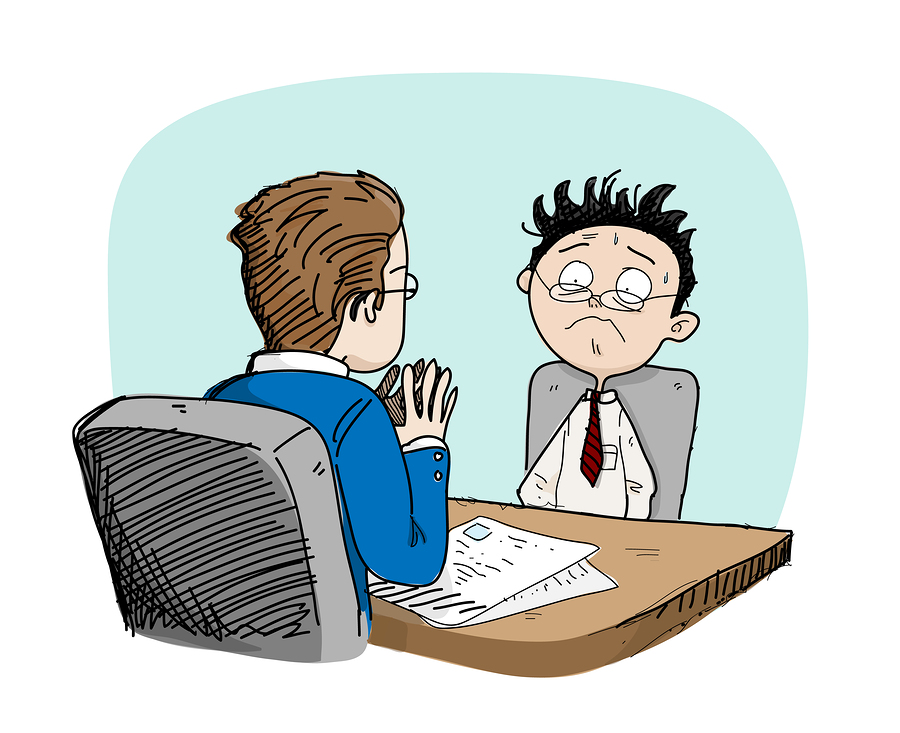A fantastic blog post from Ramona Richards reminded me why I, as a literary agent, don’t offer critiques on rejected proposals.
Believe me, as someone who used to write books, I understand the disappointment of the unhelpful rejection letter. So much that I blogged about it (click to read it).
I appreciate writers who are looking to learn more about craft, style, and what will make their books marketable. My heart aches in compassion when I receive a follow-up letter from a writer asking for help after my assistant sends a bland rejection letter. I really do want to help, but like a critique partner who means well, I might do you more harm than good. I really, really do not want to join a chorus of critique partners who, if they disagreed with one another, made you conflicted about what to do to improve your work. And I realize that any letter leaving my office might carry even more weight, in your mind. Unless I have a genuine feeling that we can work together after a few tweaks of your story, I don’t want to offer an opinion, only to have the agent you eventually do sign with, disagree.
You are a creative and ultimately, what you write is the story you should write. What this means is a willingness to learn and take advice, but also to maintain your voice. During the submission process, listen to advice that seems good, but don’t change everything about your work just to please one agent or editor who’s passed on your work. Better, keep trying with YOUR best effort and see which editors and agents value your talent. Work with that team to present your greatest work to the reading public.
Your turn:
Have too many critiques ever caused you to lose your voice?
Do you work with a critique group? Why or why not?
Where is the best place to find a critique group?



 What Editors Wish You Knew about Meeting with Them at Conferences
What Editors Wish You Knew about Meeting with Them at Conferences

I found critique groups to be difficult – I didn’t always have time to commit to read everyone’s submissions. I prefer a partner, but it’s been hard to find someone I can work with for the long haul. I’m still looking for someone I can work with for the next several years. Until then, I ask for people to help with one project at a time. I’ve been fortunate to find people will to work with me that way.
Too many critiques almost swayed me when I first started writing. After studying their comments, I made the appropriate changes and kept my voice. I’ve been involved with a critique group of ten people for about four years. I sift through their suggestions, take the ones I like and put all others on hold in case I need to refer back to them. If several make the same suggestion, then I know I must make an adjustment. I hear ACFW has some great critique groups, but mine came from a connection in a local writer’s group that meets monthly. I also have a couple of friends I consult with. I welcome constructive critiques, for me, that’s the only way to learn and grow as a writer.
Helpful, informative post, as usual, Tamela. So far, my writing critics disagreed on other things, but all supported my voice. Receiving multiple rejections makes me question other things, but not my voice, and that’s a blessing!
The best rejection I have received was from an editor who said she loved my writing and had taken my historical novel forward for board consideration, but they were wary about its potentially controversial context. Then she invited me to submit another one set in another context at my convenience. How encouraging!
So far, I’m not comfortable in critique groups. One I found through networking and formally joined without doing enough research included writers in genres that I would never choose to read, so I didn’t want to devote my time to critiquing them. Another small one-time critique meeting included a man whose writing was really, really weak in every way, but he got angry and defensive, and that was unpleasant for everyone. Several professional writer and editor friends have generously offered to critique my work, so I continue to accept and highly value their input, instead of seeking another critique group.
I connected with my latest critique partners through the ACFW conference and writing contests. We struck up conversations because we love each others’ work. It’s difficult and awkward to try to be a crit partner with someone whose work you can’t support or don’t enjoy reading. However, rather than an organized group, I’ve found working one-on-one with two or three works better for me.
Growth in writing is one thing I’m always seeking, but if I try a critique partner’s suggestion and it doesn’t work for me, I don’t bother about it. Actually, I think early critiques helped me find my writing voice. Several people would point out aspects that made the work unique and I tried to capitalize on and improve them. I’ve had trouble hiding my voice when I tried to ghost-write, so I guess it’s ingrained in me now. 🙂
I’ve been in two critique groups, a bigger one, and now a smaller more intimate one. I’ve learned so much, and gained so much knowledge and friendship. You also learn the difference between good advice and just plain bad advice. Not everyone is going to be properly educated about certain aspects of modern literary standards. And not everyone is going to be able to critique every genre either. It’s hard for a historical romance writer to critique a hard core Sci-Fi novel, and vice versa. Give that historical romance writer a Steampunk novel to critique and it may be a bit easier. Not all genres should be critiqued the same way.
It’s also a matter of knowing which crits to accept and which to toss. If they are suggesting something that totally goes against the feel of your story, or isn’t true to your story, then you need to say no. Accepting every single critique without hesitation is just foolish. But when they are right, and they are right so often, it is amazing and awesome to see what another set of critical eyes can do for your story! So many times things (mostly plot holes or inconsistencies) have been pointed out that I would have never saw otherwise. My crit partners have been an invaluable part of my writing experience and have helped me grow in so many ways. They are also some of the closest friends I have since they are invited inside my brain.
Deanna,
What an informative post! You have had the experiences I hoped for from critique groups and I agree with the points you made. It just sounds like sifting through and evaluating everything offered by group members require a lot of time and the willingness to put up with the challenges because you highly value what you gain. I agree with that in principle, but at this stage of my life I don’t have the discretionary time or patience to sift through bad advice and bad genre fits to gain more knowledge or add more friendships. Your post was a good reminder of why I’m especially grateful for the individuals willing to share their experience and hard-won expertise, whose advice I know I can trust, who are already friends. Isn’t it good that we have more than one way to get input that helps us improve as writers?
Tamela, thank you for your postings. Yes, I lost my voice for a brief time, when receiving multiple rejection letters from a variety of sources. I think it is important to be true to the person that God made you, even if others disagree.
I had a critique group when writing my dissertation- it was made up of like-minded Christians who were also writing their dissertations. We prayed for and with one another and offered support (even when we didn’t have a clue what our other group members were writing about). Out of the original seven members, all but two of the folks have successfully defended. They will both finish up this summer. Sometimes it is just good to have an extra pair of eyes looking at your work- they can see things that you have gotten too close to the writing to see.
Dr. Parmelee,
Your post was of extremely high interest to me because I’m a consultant for doctoral scholars writing their capstones (nursing), professional practice papers (seminary), or dissertations (everything else) :-). In my own doctoral program, in online classes for which regular postings in discussions were required, my classmates and I critiqued each other’s ideas, shared prayer requests, and sometimes developed long-distance, online friendships that lasted after the classes were done; but no client has ever mentioned a writing critique group like yours to me, and it never crossed my mind when I was the scholar. Was yours in person or online? Either way, I think it’s a wonderful idea and will suggest it in the future.
Thank you for sharing this post, Tamela – – makes perfect sense why you cannot/do not critique work. 🙂
Since I work alone (no critique partner or group) I have received some valuable suggestions/advice from writing contests that I’ve entered and also a few critiques I won on an author’s blog.
I always greatly appreciate any feedback I receive, but I’ve also realized that I must keep my voice. 🙂 So a couple of “extreme” suggestions I’ve gotten have been filed away, while I seriously consider and apply some really good suggestions.
Thanks again for sharing, and I’m looking forward to ACFW! 🙂
I definitely agree with the importance of finding a critique group that writes in your genre. Sword slashing fantasy doesn’t fit with contemporary romance. Since I write children’s picture books and contemporary women’s fiction, I work with two different critique groups. Each of these are connected to national writing organizations.
The most important part of being in a critique group is to find one that will challenge you and help you grow. I don’t want to be the only one in the group who is published. A mix of new and established authors works best in my mind.
Christine, Are your groups in person or online?
Thank you all so much for commenting and sharing your experiences. One of my favorite things about writing this blog is being part of this wonderful community of writers.
Good advice, Tamela. While I’ve never had a reason to change my voice, I have received several different ideas from critique group members. Some made sense with my internal concerns, so I utilized those. Other ideas that didn’t, I ignored.
I am a member of two critique groups, the Callahan Creative Writing Workshop based in Callahan, FL and my local Word Weavers chapter in Jacksonville, FL.
Word Weavers is, most of all, a Christian based, national and international, online or face-to-face group. I’ve received excellent advice and encouragement from both groups. Word Weavers can be found online at http://www.word-weavers.com and the CCWW group can be found at
http://www.facebook.com/groups/CallahanCreativeWritingWorkshop/.
I was once told to listen to criticism from agents/editors who, first, tell me how much they love my writing. This way, you’re assured that they are responding powerfully to your voice, and then, within that context, they’re offering useful criticism.